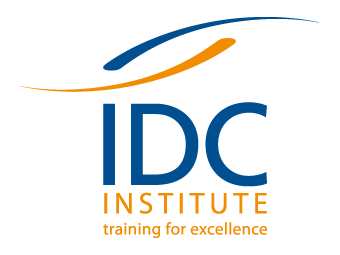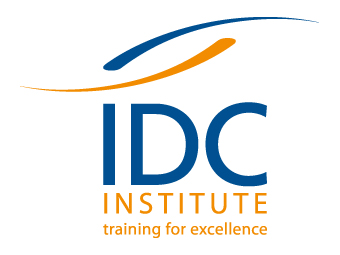Why coaching? What is it?
Coaching means supporting a person or a team for a fixed period of time in order to help them achieve what is important in their life. It is based on the principle that the person has unique talents, considerable abilities that are often “latent”, and the resources needed to succeed in their private and professional life.
Training in coaching enables a student to develop a professional activity as a coach or to use coaching skills in their work. These include relationship and communication skills that are now essential in many fields.
What can coaching achieve?
What makes coaching effective is that it not only makes coachees aware of these elements but it enables them to work towards their objectives by giving them a structure, support and specific competences. In short, coaching is a dynamic process focused on taking action.
What are the requirements to start IDC training and become a coach?
There are no formal requirements to enroll for IDC training, apart from having a positive attitude about the possibilities and potential of each human being, and keeping an open, enquiring mind.
What is the difference between “Life coaching” and “Corporate coaching”?
All coaching concerns an individual, whether it is done at a private or an organisational level. Corporate coaching requires the coach to have experience of the business world and what it involves. This enables the coach to properly understand the client’s needs. Acquiring specific tools can be an advantage.
How is certified professional training organised ?
The complete training is comprised of 3 parts:
- Basic level I: the foundations of coaching practice.
- Advanced level II is divided into three sub-modules IIA, IIB IIC.
Level I and level II training can be completed in a one-year programme (8 months) or in an intensive course at the SUMMER UNIVERSITY (20 days). - Certification level (two cycles per year).
Who is level III training intended for?
It is for people who intend to develop a successful coaching practice and want the professional recognition of a certificate that is accredited by a recognised international body, the International Coach Federation (ICF). This accreditation “Accredited Coach Training Program” (ACTP) is awarded by ICF after examining the training dossier. The training entity, IDC in this case, must renew its accreditation every three years by following a rigorous process of “quality” control that regularly becomes more demanding. The IDC diploma also carries the Swiss quality label EduQua.
What are the advantages of IDC training?
There are several:
- It carries two quality labels, one national, (EduQua) and one international (ICF), and the diploma is valid around the world.
- Personalised practical training based on “Learning by doing”, helps to acquire new skills faster.
- A team of trainers, all professional coaches, share their experiences with you and enrich the “apprenticeship”process.
- Rigorous validation is a key part of the training with supervisors giving personalised feedback.
- We offer flexibility in the choice of programme, in the language (French or English) and in the duration (a one-year course or an intensive Summer University course).
- Additional training is available – Master, Corporate Coaching – to get ahead in this important area, steps leading to success.
What kind of approach does IDC use?
IDC follows several approaches in its training. They include a systemic approach, the “Solution Focus” principle, “Appreciative Coaching” and learning techniques based on somatic. All the tools and processes we teach are practised by the students working in pairs, which gives them personal practical experience.
What do I receive at the end of my training at level I and IIA-B-C?
After attending 4 consecutive training days at each level you will receive a CERTIFICATE of participation.
Do I have to practice between sessions?
Yes, in groups of pairs that come together between modules to practice using the tools. They must provide a written report on their practice to the trainer.
Am I certified after level II?
No. To become a certified coach you must continue and successfully finish level III, which is the certification programme.
Do I have to be present for training or can I do it by distance learning?
You have to physically attend the 4 basic modules. The certification process does include some distance learning (teleconferences and videos).
What backgrounds do the students have?
Students’ profiles vary but many of them have experience in Human Resources, consulting, management and psychology. Some are in the process of changing their career. We also have sometimes a number of artists and musicians who want to add coaching skills to their teaching.
What are the opportunities for coaches?
Coaching is in demand for many reasons but many of them reflect changes in personal life: starting a new occupation, making a career move, adapting to an increasingly global multicultural environment, the need to develop new professional or personal skills, finding a work-life balance, managing stress etc. The support of a coach in situations like these helps to put things in perspective, clarify objectives and take actions that will give meaning to what is happening.
Do I have to take the different levels in order?
Yes, this is obligatory. The modules are progressive: each module builds on what was learned in the previous one. This makes the training and the practice more powerful.
When I receive my IDC diploma am I automatically certified by ICF?
No, ICF accreditation is not automatic. You must prepare an application form for ICF which has its own criteria for the number of hours you have spent training in coaching skills and the number of hours of practice you have carried out. IDC certification involves more than the minimum training hours required by ICF and about 2/3 of the practice hours required. Find out more.
Why is accreditation important?
It gives you even greater visibility and a double recognition of your diploma: one awarded by the training organisation itself, IDC, and the other from the ICF, an internationally acknowledged independent body.
How does IDC help us to find clients ?
The trainers share a lot of their experience with the students, particularly in an optional session in each module when the students can ask questions about practicing coaching and marketing their services, etc.
IDC also offers its certified students the opportunity to be listed on the IDC site under “Find A Coach”. Here they can detail their specialties, their experience, the language(s) they coach in and in which canton or country they are based.

